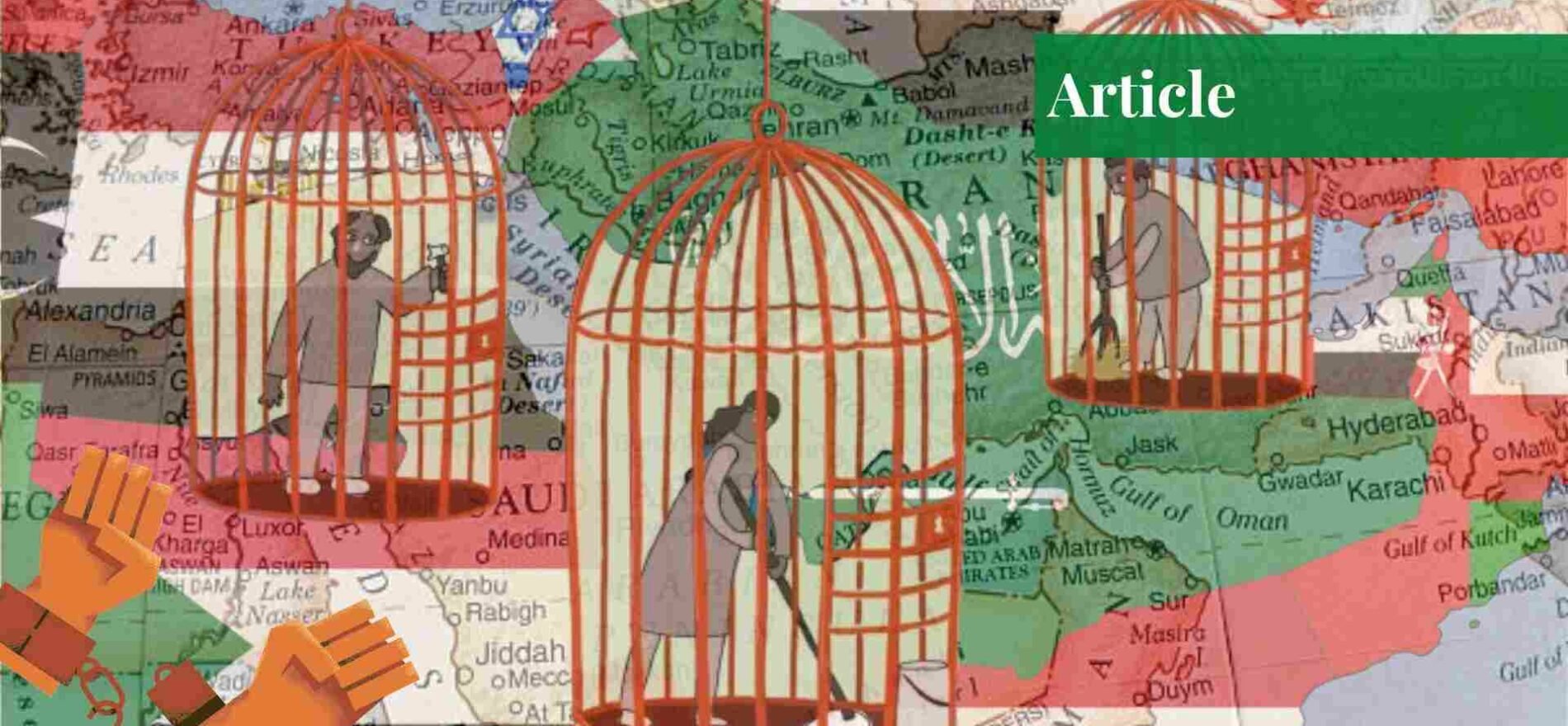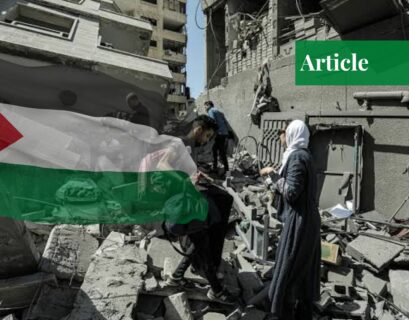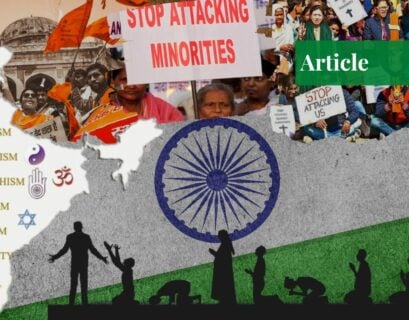Khizra Rashad is currently pursuing her bachelor’s degree in international relations from Kinnaird College for Women and University, Lahore. She has a profound interest in writing on diverse domains, including global history, international law, and regional geopolitics.
Who are Migrant Workers?
Migrant laborers are defined as workers who migrate from one place to another in pursuit of employment or to seek better living conditions. The United Nations Convention on the Protection of the Rights of All Migrant Workers and Members of Their Families (ICRMW) describes a migrant worker as a person who is to be employed, is employed, or has been employed in a remunerated activity in a country of which he/she is not a citizen.
Whereas, the International Labour Organization (ILO) defines a migrant laborer as an individual who migrates from one country to another with the view of being employed other than on his account. According to International Labour Organization (ILO) report of 2021 an estimated 169 million migrant workers made up 62% of the migrant population globally. If we break down this labor force into regions individually, migrant workers constituted about 8.1% of the African population, 14.2% of the Asia-Pacific population, 14.3% of the Gulf population, and 37.7% of the European and Central Asian population.
The pattern of migrant employment differs from region to region. For instance, in the European labor market, migrant workers can be found in skilled professions, like the agriculture, healthcare, or services sectors. Whereas in the Middle East, migrant labor is primarily employed in sectors like construction, domestic work, and manual work.
Challenges Faced by Migrant Workers
Although foreign workers play their part in contributing to the economic development of the host country, they face numerous challenges and violations of their labor and human rights. They may be subject to low wages, hazardous working conditions, discrimination based on ethnicity or nationality, limited or no access to social and healthcare facilities, and workplace abuse or racism. Due to their position, they can be vulnerable to human trafficking, forced labor, or smuggling as well. Such abuses and discriminations are standard violations of a worker’s labor and human rights.
For instance, a migrant worker’s subjection to unequal treatment, as compared to a national worker, violates the right to equality of treatment and discrimination as affirmed in Article 2 of the International Covenant on Civil and Political Rights (ICCPR). Similarly, if a foreign worker is subjected to forced labor, it violates the right to freedom from servitude and forced labor as affirmed in Article 4 of the Universal Declaration of Human Rights (UDHR). If a migrant worker faces discrimination based on his/her culture, language, and religious affiliation, it violates his/her right to cultural identity as affirmed in Article 31 of ICRMW.
International Frameworks Facilitating Rights of Migrant Workers
The rights of migrant workers are affirmed in many international instruments. Moreover, institutions like the International Labour Organization (ILO) have also put forward labor standards according to which migrant workers must be entitled to fundamental human rights at work. These rights include the right to be protected against discrimination, productive work as the basis of a livelihood, protection against accidents, social security, and social inclusion.
Yet, the rights of migrant workers are continuously being violated. We see that Article 11 of the ICRMW states that no migrant worker shall be held in slavery nor shall they be required to perform forced or compulsory labor. However, a survey report submitted by the International Labour Organization (ILO) in 2022 highlighted forced labor amongst migrant domestic workers in Malaysia, Thailand, and Singapore, They also received low wages and were made to work for long hours without getting overtime pay. Similarly, the kafala system in the Middle East has been criticized as it violates migrant workers’ rights.
What is the Kafala System?
The kafala system is defined as a legal employment framework based on sponsorship where a migrant worker’s legal status is directly tied to his/her employer. Workers rely on their employers for their residence and work permits whereas the employer exercises extensive control over workers, which sometimes leads to abuse and exploitation. It is an established labor system in the Middle East or Arab states that fulfills the demand for migrant workers, usually from regions like Africa and Asia.
This sponsorship system has been labeled a “modern-day slavery system” due to the vast human and workers’ rights violations taking place under it. For instance, an application of kafala system can be found in Lebanon where migrant workers are not allowed to quit their jobs or leave the country without the permission of their employers, certainly violating Article 8 (right to liberty of movement) of ICCPR. Hence, the kafala system gives Lebanon the right to limit the mobility of the workers.
Similarly, there are no standard contracts for migrant workers in Bahrain, Jordan, and Kuwait which makes them vulnerable to exploitation and denies them their basic rights. GCC countries like Saudi Arabia, Bahrain, UAE, and Oman have not ratified the ILO Convention on Domestic Workers (C189) which commits to ensuring the protection of labor rights. As a result, the kafala workers working and living in these countries to support their families back home are not provided with their minimum wages.
Qatar and the FIFA 2022 Controversy
Qatar faced extreme international backlash during the preparations made for the construction of the 2022 FIFA World Cup stadium. The Gulf state was highly criticized for the treatment of migrant workers, particularly those involved in the construction of the stadium since Qatar won the World Cup bid in 2010. Various reports highlighted human rights and worker rights abuses, with more than 6000 South Asian migrant workers reported dead since 2010.
According to the FairSquare Project, a human and labor rights advocacy group, a significant number of migrant workers who were employed at World Cup building projects since 2011 have died. Government sources reported that from the years 2011-2020, about 5000 migrant workers from Nepal, Sri Lanka, Bangladesh, and India had died in Qatar. Whereas, the Pakistani embassy in Qatar reported that about 800 Pakistani workers had died in the period 2010-2020.
However, in 2022 Hassan Al Thawadi, Qatar’s 2022 World Cup chief, stated that between 400 and 500 migrant workers had died who were employed at projects connected to FIFA. Qatar’s estimated migrant force is about 2 million, with many workers coming from South Asia. On many occasions, the Gulf country has been accused of mistreating its migrant labor force. It was reported that on World Cup infrastructure sites, migrant workers were threatened for taking breaks or even for drinking water.
The 2022 FIFA World Cup controversy also highlighted the Qatari government’s failure to investigate the deaths of migrant workers and misattributing these fatalities to natural causes or medical conditions. Qatar faced outright international pressure for the mistreatment of its migrant workforce. European Union also passed a resolution in 2022, calling out FIFA to pay compensation amounts to the families of the workers who had lost their lives in World Cup construction projects.
The Way Forward
Such violations of worker and human rights under the kafala system have contravened numerous international conventions. Although international conventions have put forward standard rights for workers to prevent their exploitation by the kafala system, it is up to the states now to enforce these laws and establish an effective labor system free from abuses and exploitation. Kuwait and Qatar introduced some significant kafala reforms, with Kuwait setting a minimum wage for migrant workers and Qatar allowing migrant workers to change their jobs without obtaining an employer’s consent.
There’s an outright need to improve migrant worker rights through the enforcement of fair labor laws, access to respectable representation, implementation of non-discriminatory policies, holding employers accountable, and providing healthcare, language, and cultural support to the migrant workforce. Moreover, there should be a worldwide emphasis on the establishment of trade unions and migrant associations to help empower migrant workers and protect their rights.
If you want to submit your articles and/or research papers, please check the Submissions page.
The views and opinions expressed in this article/paper are the author’s own and do not necessarily reflect the editorial position of Paradigm Shift.



















